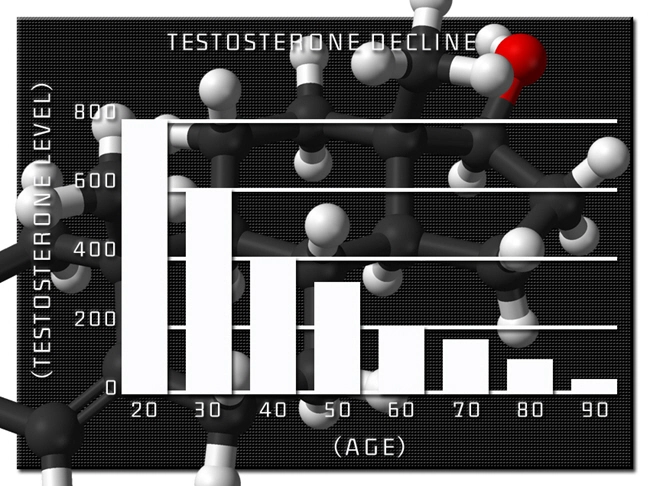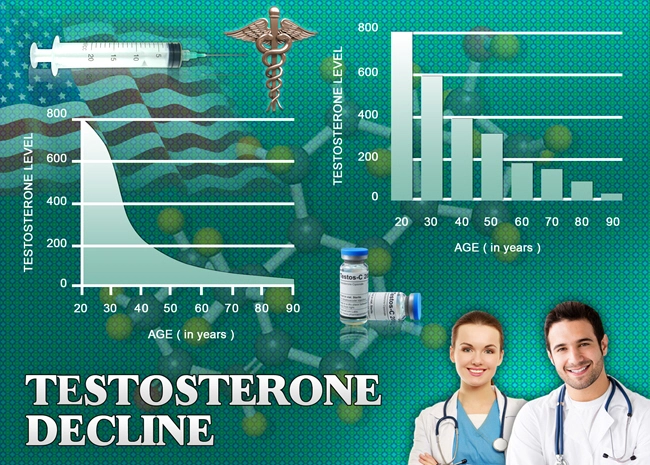
Introduction
Testosterone Cypionate, a widely used anabolic steroid among American males, has sparked interest and concern regarding its impact on liver function and potential hepatotoxicity. This article delves into a comprehensive analysis of the biochemical and histological effects of Testosterone Cypionate on the liver, aiming to provide a clearer understanding of its safety profile and implications for male health.
Background on Testosterone Cypionate
Testosterone Cypionate is an injectable form of testosterone, commonly used to treat conditions such as hypogonadism and delayed puberty. Its popularity extends beyond medical use, with many American males using it for performance enhancement and bodybuilding. While its benefits are well-documented, the potential risks, particularly to liver health, warrant thorough investigation.
Biochemical Impact on Liver Function
Research indicates that Testosterone Cypionate can influence various liver enzymes, which serve as markers of liver function. Elevated levels of alanine aminotransferase (ALT) and aspartate aminotransferase (AST) have been observed in some users, suggesting potential liver stress. However, these changes are often transient and may not necessarily indicate long-term damage. Studies have shown that while some individuals may experience a temporary increase in these enzymes, the majority return to normal levels upon cessation of the steroid.
Histological Examination of Liver Tissue
Histological studies provide a more in-depth look at the liver's response to Testosterone Cypionate. In some cases, mild hepatic steatosis, or fatty liver, has been observed. This condition, characterized by the accumulation of fat in liver cells, is generally reversible and not associated with significant liver damage. Importantly, severe histological changes, such as fibrosis or cirrhosis, are rare and typically linked to prolonged, high-dose use.
Risk Factors and Individual Variability
The risk of hepatotoxicity from Testosterone Cypionate appears to be influenced by several factors, including dosage, duration of use, and individual genetic predispositions. Men with pre-existing liver conditions or those who consume alcohol heavily may be at higher risk. It is crucial for users to be aware of these factors and to monitor their liver health through regular medical check-ups.
Comparative Analysis with Other Anabolic Steroids
When compared to other anabolic steroids, Testosterone Cypionate is considered to have a relatively low risk of hepatotoxicity. Oral steroids, such as methyltestosterone, are more likely to cause liver damage due to their first-pass metabolism through the liver. In contrast, injectable forms like Testosterone Cypionate bypass this process, potentially reducing the risk of liver-related side effects.
Clinical Recommendations and Monitoring
Healthcare providers recommend regular monitoring of liver function tests for individuals using Testosterone Cypionate. This includes baseline assessments before starting treatment and periodic evaluations during use. Any significant changes in liver enzymes should prompt a thorough evaluation to rule out other causes and consider discontinuation of the steroid if necessary.
Conclusion
In conclusion, while Testosterone Cypionate can affect liver function and may cause mild, reversible changes in some American males, the risk of severe hepatotoxicity appears to be low when used responsibly. Understanding the biochemical and histological impacts, along with individual risk factors, is essential for safe use. Continued research and vigilant monitoring are key to ensuring the well-being of those who choose to use this steroid.
By providing a comprehensive overview of the effects of Testosterone Cypionate on liver health, this article aims to equip American males with the knowledge needed to make informed decisions about their health and steroid use.
Contact Us Today For A Free Consultation
Dear Patient,
Once you have completing the above contact form, for security purposes and confirmation, please confirm your information by calling us.
Please call now: 1-800-380-5339.
Welcoming You To Our Clinic, Professor Tom Henderson.

- Testosterone Cypionate: Benefits, Risks, and Holistic Management for Aging American Men [Last Updated On: March 1st, 2025] [Originally Added On: March 1st, 2025]
- Testosterone Cypionate: Enhancing Male Health Through Injection Therapy [Last Updated On: March 17th, 2025] [Originally Added On: March 17th, 2025]
- Testosterone Cypionate's Impact on Sleep Patterns in American Males: A Comprehensive Analysis [Last Updated On: March 18th, 2025] [Originally Added On: March 18th, 2025]
- Testosterone Cypionate Stigma in American Males: Origins, Impacts, and Destigmatization Strategies [Last Updated On: March 18th, 2025] [Originally Added On: March 18th, 2025]
- Strategies to Minimize Side Effects of Testosterone Cypionate in American Men [Last Updated On: March 18th, 2025] [Originally Added On: March 18th, 2025]
- Testosterone Cypionate: Enhancing Weight Management in American Men [Last Updated On: March 19th, 2025] [Originally Added On: March 19th, 2025]
- Navigating Insurance for Testosterone Cypionate Therapy: A Guide for American Males [Last Updated On: March 19th, 2025] [Originally Added On: March 19th, 2025]
- Testosterone Cypionate: Impacts on Prostate Health in American Men [Last Updated On: March 19th, 2025] [Originally Added On: March 19th, 2025]
- Testosterone Cypionate: Benefits, Risks, and Long-Term Health Impacts on American Men [Last Updated On: March 19th, 2025] [Originally Added On: March 19th, 2025]
- Testosterone Cypionate's Impact on Mental Clarity in American Men: Experiences and Insights [Last Updated On: March 19th, 2025] [Originally Added On: March 19th, 2025]
- Testosterone Cypionate Therapy: Costs, Coverage, and Financial Planning for American Males [Last Updated On: March 20th, 2025] [Originally Added On: March 20th, 2025]
- Testosterone Cypionate: Managing Chronic Conditions in American Men [Last Updated On: March 20th, 2025] [Originally Added On: March 20th, 2025]
- Testosterone Cypionate: Effects on Skin Health and Management Strategies for American Men [Last Updated On: March 21st, 2025] [Originally Added On: March 21st, 2025]
- Monitoring Testosterone Cypionate Levels: Essential Guide for Safe TRT in American Men [Last Updated On: March 22nd, 2025] [Originally Added On: March 22nd, 2025]
- Testosterone Cypionate: A Dual Benefit for Diabetes Management in American Males [Last Updated On: March 23rd, 2025] [Originally Added On: March 23rd, 2025]
- Testosterone Cypionate: A Promising Treatment for Depression in American Males [Last Updated On: March 23rd, 2025] [Originally Added On: March 23rd, 2025]
- Testosterone Cypionate: Debunking Myths and Clarifying Facts for American Men's Health [Last Updated On: March 23rd, 2025] [Originally Added On: March 23rd, 2025]
- Testosterone Cypionate's Impact on Hearing in American Men: A Comprehensive Review [Last Updated On: March 24th, 2025] [Originally Added On: March 24th, 2025]
- Testosterone Cypionate: A Vital Tool for American Transgender Males' Transition [Last Updated On: March 24th, 2025] [Originally Added On: March 24th, 2025]
- Testosterone Cypionate: Enhancing Libido in American Men - Benefits and Risks [Last Updated On: March 24th, 2025] [Originally Added On: March 24th, 2025]
- Testosterone Cypionate: Legal Status and Usage Guidelines for American Males [Last Updated On: March 24th, 2025] [Originally Added On: March 24th, 2025]
- Testosterone Cypionate's Impact on Immune Function in American Males: A Review [Last Updated On: March 24th, 2025] [Originally Added On: March 24th, 2025]
- Testosterone Cypionate's Impact on Blood Pressure in American Men: A Comprehensive Review [Last Updated On: March 25th, 2025] [Originally Added On: March 25th, 2025]
- Testosterone Cypionate: Enhancing Emotional Well-being in American Males [Last Updated On: March 25th, 2025] [Originally Added On: March 25th, 2025]
- Testosterone Cypionate: Benefits, Risks, and Safety for American Males on TRT [Last Updated On: March 25th, 2025] [Originally Added On: March 25th, 2025]
- Testosterone Cypionate's Impact on Vision Health in American Males: A Comprehensive Review [Last Updated On: March 25th, 2025] [Originally Added On: March 25th, 2025]
- Testosterone Cypionate: Enhancing Body Composition in American Men [Last Updated On: March 25th, 2025] [Originally Added On: March 25th, 2025]
- Testosterone Cypionate's Role in Injury Recovery: Benefits, Risks, and Considerations [Last Updated On: March 25th, 2025] [Originally Added On: March 25th, 2025]
- Testosterone Cypionate: A Promising Treatment for Osteoporosis in American Males [Last Updated On: March 25th, 2025] [Originally Added On: March 25th, 2025]
- Testosterone Cypionate's Impact on Red Blood Cell Production in American Men [Last Updated On: March 25th, 2025] [Originally Added On: March 25th, 2025]
- Testosterone Cypionate: Cardiovascular Benefits and Risks in American Men [Last Updated On: March 25th, 2025] [Originally Added On: March 25th, 2025]
- Testosterone Cypionate: A Promising Treatment for Autoimmune Disorders in American Men [Last Updated On: March 25th, 2025] [Originally Added On: March 25th, 2025]
- Testosterone Cypionate: A Promising Treatment for Chronic Fatigue in American Males [Last Updated On: March 25th, 2025] [Originally Added On: March 25th, 2025]
- Testosterone Cypionate: Muscle Growth Benefits vs. Joint Health Risks for American Men [Last Updated On: March 25th, 2025] [Originally Added On: March 25th, 2025]
- Testosterone Cypionate's Impact on Thyroid Function in American Men: A Review [Last Updated On: March 25th, 2025] [Originally Added On: March 25th, 2025]
- Testosterone Cypionate and Hair Loss in American Males: Mechanisms, Risks, and Management [Last Updated On: March 26th, 2025] [Originally Added On: March 26th, 2025]
- Testosterone Cypionate's Impact on Cholesterol Levels in American Males: A Comprehensive Analysis [Last Updated On: March 26th, 2025] [Originally Added On: March 26th, 2025]
- Testosterone Cypionate: Enhancing Cognitive Function in American Men [Last Updated On: March 26th, 2025] [Originally Added On: March 26th, 2025]
- Testosterone Cypionate's Impact on Liver Function in American Males: Risks and Monitoring [Last Updated On: March 26th, 2025] [Originally Added On: March 26th, 2025]
- Testosterone Cypionate: A Novel Treatment for Skin Conditions in American Males [Last Updated On: March 27th, 2025] [Originally Added On: March 27th, 2025]
- Testosterone Cypionate: Boosting Energy Levels in American Men with Low Testosterone [Last Updated On: March 27th, 2025] [Originally Added On: March 27th, 2025]
- Testosterone Cypionate: Neurological Impacts and Risks for American Men [Last Updated On: March 27th, 2025] [Originally Added On: March 27th, 2025]
- Testosterone Cypionate: Uses, Benefits, and Safe Usage for American Men [Last Updated On: March 27th, 2025] [Originally Added On: March 27th, 2025]
- Testosterone Cypionate's Impact on Eye Health: Benefits and Risks for American Men [Last Updated On: March 27th, 2025] [Originally Added On: March 27th, 2025]
- Testosterone Cypionate's Impact on Lung Function in American Men: Benefits and Risks [Last Updated On: March 27th, 2025] [Originally Added On: March 27th, 2025]
- Testosterone Cypionate's Impact on Kidney Health in American Men: Risks and Management [Last Updated On: March 28th, 2025] [Originally Added On: March 28th, 2025]
- Testosterone Cypionate and Male Pattern Baldness: Management Strategies for American Men [Last Updated On: March 28th, 2025] [Originally Added On: March 28th, 2025]
- Testosterone Cypionate's Impact on Digestive Health in American Men: An Overview [Last Updated On: March 28th, 2025] [Originally Added On: March 28th, 2025]
- Testosterone Cypionate: A Novel Approach to Managing Allergies in American Males [Last Updated On: March 29th, 2025] [Originally Added On: March 29th, 2025]
- Testosterone Cypionate's Impact on Mental Health in American Males: Benefits and Risks [Last Updated On: March 29th, 2025] [Originally Added On: March 29th, 2025]
- Testosterone Cypionate: Exploring Pain Management Benefits for American Males [Last Updated On: March 30th, 2025] [Originally Added On: March 30th, 2025]
- Testosterone Cypionate's Impact on Dental Health in American Men: A Comprehensive Overview [Last Updated On: March 30th, 2025] [Originally Added On: March 30th, 2025]
- Testosterone Cypionate: A Promising Treatment for Respiratory Conditions in American Males [Last Updated On: April 1st, 2025] [Originally Added On: April 1st, 2025]
- Testosterone Cypionate: Effects on Endocrine System and Health in American Men [Last Updated On: April 4th, 2025] [Originally Added On: April 4th, 2025]
- Testosterone Cypionate: Effects on Urinary System and Management in American Men [Last Updated On: April 4th, 2025] [Originally Added On: April 4th, 2025]
- Testosterone Cypionate's Impact on Fertility in American Men: Risks and Management [Last Updated On: April 4th, 2025] [Originally Added On: April 4th, 2025]
- Testosterone Cypionate: Managing Metabolic Disorders in American Males [Last Updated On: April 6th, 2025] [Originally Added On: April 6th, 2025]
- Testosterone Cypionate's Impact on Gastrointestinal Health in American Males [Last Updated On: April 6th, 2025] [Originally Added On: April 6th, 2025]
- Testosterone Cypionate's Impact on Immune Function in American Men: A Comprehensive Review [Last Updated On: April 7th, 2025] [Originally Added On: April 7th, 2025]
- Testosterone Cypionate's Impact on Cardiovascular Health in American Men: Benefits and Risks [Last Updated On: April 9th, 2025] [Originally Added On: April 9th, 2025]
- Testosterone Cypionate: Enhancing Musculoskeletal Health in American Males [Last Updated On: April 9th, 2025] [Originally Added On: April 9th, 2025]
- Testosterone Cypionate: A Promising Therapy for Neurological Disorders in American Males [Last Updated On: April 11th, 2025] [Originally Added On: April 11th, 2025]
- Testosterone Cypionate's Role in Managing Hematological Disorders in American Males [Last Updated On: April 11th, 2025] [Originally Added On: April 11th, 2025]
- Testosterone Cypionate's Impact on Respiratory Health in American Men: A Comprehensive Review [Last Updated On: April 12th, 2025] [Originally Added On: April 12th, 2025]
- Testosterone Cypionate's Dermatological Effects on American Men: Acne, Hair Loss, and Skin Aging [Last Updated On: April 12th, 2025] [Originally Added On: April 12th, 2025]
- Testosterone Cypionate's Impact on Renal Health in American Men: Risks and Management [Last Updated On: April 13th, 2025] [Originally Added On: April 13th, 2025]
- Testosterone Cypionate: Impacts on Genitourinary System and Management Strategies [Last Updated On: April 13th, 2025] [Originally Added On: April 13th, 2025]
- Testosterone Cypionate: Enhancing Muscle and Bone Health in American Males [Last Updated On: April 14th, 2025] [Originally Added On: April 14th, 2025]
- Testosterone Cypionate's Impact on Mental Health in American Men: Benefits and Risks [Last Updated On: April 16th, 2025] [Originally Added On: April 16th, 2025]
- Testosterone Cypionate's Impact on Hematological System: Benefits and Risks [Last Updated On: April 17th, 2025] [Originally Added On: April 17th, 2025]
- Testosterone Cypionate's Impact on Gastrointestinal Health in American Men [Last Updated On: April 17th, 2025] [Originally Added On: April 17th, 2025]
- Testosterone Cypionate: A Promising Treatment for Respiratory Disorders in American Males [Last Updated On: April 18th, 2025] [Originally Added On: April 18th, 2025]
- Testosterone Cypionate: Emerging Dermatological Uses and Considerations in American Males [Last Updated On: April 18th, 2025] [Originally Added On: April 18th, 2025]
- Testosterone Cypionate's Neurological Impacts on American Men: Benefits and Risks [Last Updated On: April 18th, 2025] [Originally Added On: April 18th, 2025]
- Testosterone Cypionate: Uses, Mechanism, and Safety in Treating Endocrine Disorders [Last Updated On: April 18th, 2025] [Originally Added On: April 18th, 2025]
- Testosterone Cypionate: Impacts on Endocrine System and Health in American Males [Last Updated On: April 19th, 2025] [Originally Added On: April 19th, 2025]
- Psychiatric Effects of Testosterone Cypionate in American Men: A Comprehensive Overview [Last Updated On: April 20th, 2025] [Originally Added On: April 20th, 2025]
- Testosterone Cypionate: Effective Hypogonadism Treatment for American Men [Last Updated On: April 21st, 2025] [Originally Added On: April 21st, 2025]
- Testosterone Cypionate: Enhancing Muscle and Bone Health in American Men [Last Updated On: April 22nd, 2025] [Originally Added On: April 22nd, 2025]
- Testosterone Cypionate's Role in Managing Metabolic Syndrome in American Males [Last Updated On: April 23rd, 2025] [Originally Added On: April 23rd, 2025]








